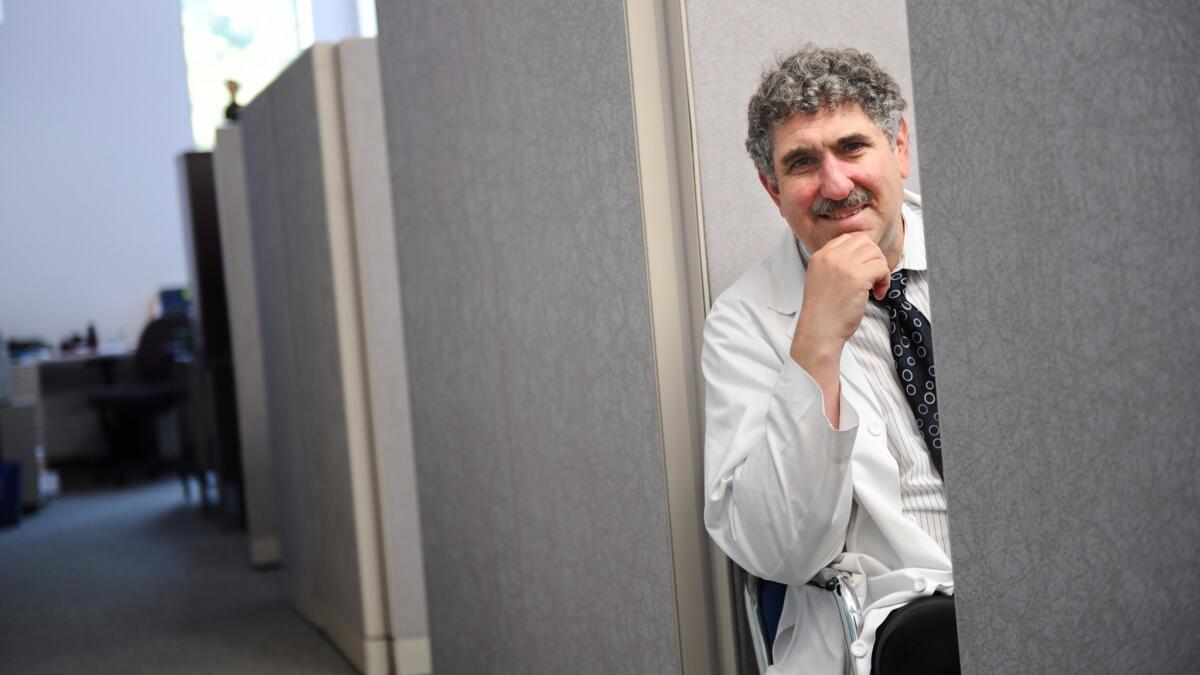Readers React: Opposition to California’s end-of-life law shows why the Hippocratic Oath might be outdated

To the editor: I find the characterizations by Dr. Neil Wenger, head of UCLA’s Health Ethics Center, regarding California’s new end-of-life law to be disingenuous and unfortunate. (“As California’s End of Life act goes into effect, some doctors question where to draw the line,” June 6)
First, doctors have hastened death for many years. They have knowingly prescribed lethal doses of morphine for those in hospice or abided by requests to “pull the plug” for patients on life support. Second, the prescriptions allowed by this act are not “poisons.” If Wenger and other physicians don’t want to write such prescriptions, that is their right, but they shouldn’t denigrate those who will do so.
I have late-stage terminal bone marrow cancer and will soon take advantage of this new law. I feel fortunate it is taking effect when I need it to shorten the time I am in physical pain and to reduce the mental pain of losing quality of life — as I define that term.
I could easily end my life in ways that would be quite messy and unpleasant for others. But this humane law will allow me to die in a peaceful and dignified manner at a time and place of my choosing and in the company of people I care about.
Bob Stone, Los Angeles
..
To the editor: Ethical physicians have every reason to be uneasy regarding this law, as it violates medical ethics by allowing physicians in a caring, healing profession to help kill their patients.
The article states that patients “with less than six months to live” may request the lethal drugs from their doctors. A six-month “terminal” prognosis is a joke among medical professionals. There is no way an accurate diagnosis can be made that far in advance, and prognostic error is widespread. Some patients have lived for years after being told this.
The immense pressure and depression after this risky diagnosis could lead patients to do something they normally wouldn’t even consider.
Germaine Wensley, Playa del Rey
The writer, a registered nurse, is vice president of the antiabortion group California Nurses for Ethical Standards.
..
To the editor: Dr. Wenger misinterprets the Hippocratic Oath that mentions not administering poison when asked but says nothing about killing the patient. Food to the allergic person can be construed as poison. We must always treat the patient in need.
The oath also mentions it is against abortion. Some medical schools have stopped administering it as outdated. Our culture has changed dramatically since the Greeks defined Western civilization.
With our dysfunctional healthcare system, the less fortunate among us with terminal illness or a helpless neuromuscular disease can now opt out of their misery. They should be able to do this in spite of physicians living in the past who are unwilling to participate in the complete care of their patients.
Jerome P. Helman, MD, Venice
..
To the editor: Near the end of her life, my sister’s metastatic breast cancer had moved into her lungs and her brain. When she fell into a coma at home, the paramedics transported her to a local hospice.
I stayed with her the entire time and watched as the hospice nurses came into the room every few hours and injected her with morphine. I asked one of them how she knew whether or not my sister was in pain since she was in a coma. “We just know,” she said.
My sister died two days later. The basic signs of morphine toxicity were evident: bluish skin discoloration and increasingly shallow breathing that eventually stopped.
The little secret is that hospice nurses and physicians have been helping terminal patients move more quickly toward death for decades. Medical aid in dying is a reality, and appealing to a 2,500-year-old oath that has been significantly modified over the years is not a valid argument.
Eric Stroud, Los Angeles
Follow the Opinion section on Twitter @latimesopinionand Facebook
More to Read
A cure for the common opinion
Get thought-provoking perspectives with our weekly newsletter.
You may occasionally receive promotional content from the Los Angeles Times.






